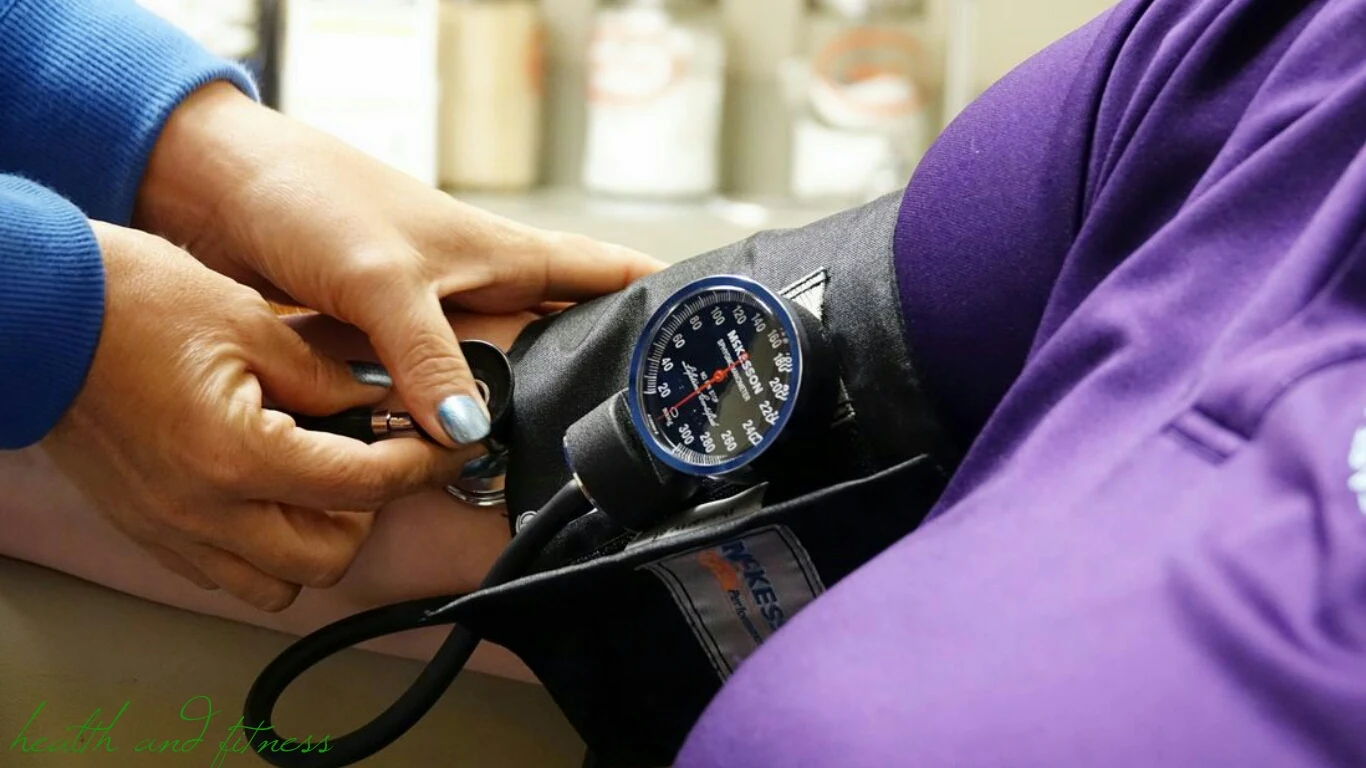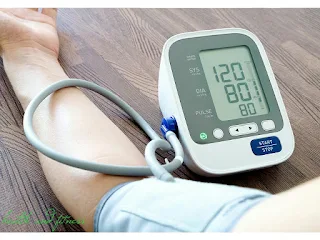Hypertension
Some people experience high blood pressure for years without feeling any symptoms. High and uncontrolled blood pressure increases the risk of serious health problems, such as a heart attack and stroke.
High blood pressure often develops over many years, and ultimately it appears in almost all people.
Fortunately, the disease is very easy to detect, so control of it is possible with the help of doctors.
symptoms of high blood pressure
The symptoms of high blood pressure do not appear in most of the people who suffer from it, as well as in cases where the blood pressure records high values to the extent that they constitute a danger.
In some patients, the following symptoms appear:
• Mild headaches
• dizziness
• Extraordinary bleeding from the nose.
But these symptoms and signs usually appear when the disease reaches a more advanced stage, to the extent that it poses a life threat.
causes and risk factors for high blood pressure
There are two types of hypertension:
• Primary hypertension (major): In 90% - 95% of cases in adults, the cause cannot be identified. This species tends to evolve gradually, over several years.
• Secondary Hypertension: At the remaining 5% - 10%, this type is born as a result of another illness, and it usually appears suddenly and causes blood pressure higher than that caused by the primary.
Several diseases and medications are among the most important causes of secondary high blood pressure, among them:
• Kidney disease
• Adrenal gland tumors
• Certain birth defects in the heart
• Certain medications such as birth control pills, anti-cold drugs, decongestants
• over-the-counter pain relievers and several prescription medications
• Drugs such as cocaine and amphetamine (Amphetamine).
risk factors
Several factors increase your risk of developing high blood pressure, some of which cannot be controlled, which include:
• Age: The risk of developing the disease increases with age. At the beginning of middle age, the disease is more common among men. As for women, they tend to develop menopause.
• Family history: Hypertension tends to be transmitted genetically.
other controllable additional risk factors:
It is represented in:
• Obesity: The higher the human being, the more blood he needs to be able to deliver oxygen and nutrients to the various tissues of the body. The greater the amount of blood flowing into the blood vessels, the greater the pressure on the arterial walls.
• Lack of physical activity: the frequency of cardiac work in people who do not exercise is higher than in those who do it. The faster the heart works, the more effort the heart needs to make at each contraction, which increases pressure on the arteries. Also, lack of physical activity increases the risk of obesity.
• Smoking: Tobacco smoking instantly and temporarily raises blood pressure. Also, chemicals in tobacco may damage artery walls. As a result, the arteries may become narrower, resulting in high blood pressure.
• Nutritionally High Salt (Sodium): The presence of a very large amount of table salt (sodium) in the diet may lead to fluid retention in the body, which causes high blood pressure.
• Low Potassium Nutrition: Potassium helps balance the sodium level in cells. When a sufficient amount of potassium is not consumed or stored, this may lead to the accumulation of a very large amount of sodium in the blood.
• Low Vitamin D Nutrition: It is unclear whether a lack of Vitamin D can cause hypertension, or not. Researchers believe that vitamin D can affect an enzyme produced by the kidneys and affect blood pressure.
• Alcohol intake: Consuming alcohol may cause hormones that lead to high blood pressure and an increased heart rate.
• Tension: high levels of tension lead to a temporary, but dramatic, rise. Attempts to relax by eating a lot, smoking tobacco or drinking alcohol, may complicate blood pressure problems.
• Chronic diseases: Some chronic diseases (including high cholesterol, diabetes, insomnia, and kidney disease) may increase your risk of developing high blood pressure.
Sometimes pregnancy is a factor affecting high blood pressure.
Mainly, hypertension is common among adults, but children may also be at risk of developing it, sometimes.
In some children, hypertension develops as a result of kidney or heart problems. But a large and growing number of children are at risk of developing high blood pressure as a result of bad life habits, such as improper and unhealthy nutrition and lack of physical activity.
complications of high blood pressure
Excess blood pressure on the arterial walls may cause damage to blood vessels and other parts of the body. The higher the blood pressure, the higher, and the longer it remains untreated for a longer period.
Failure to treat high blood pressure may lead to:
• Damage to blood vessels
• Local expansion of the walls of blood vessels - (Aneurysm)
• Cardiac arrest
• Obstruction or rupture of blood vessels in the brain
• Weakness and narrowing of blood vessels in the kidneys
• Condensation, narrowing or wounding of blood vessels in the eyes
• Problems with memory or understanding.
Diagnose with high blood pressure
Blood pressure is determined by the amount of blood your heart pumps and the level of resistance to blood flow in the arteries. The more blood the heart pumps and the narrower the arteries, the higher the blood pressure.
blood pressure measurement
To detect and treat hypertension, blood pressure is measured by a special device consisting of an inflatable bracelet wrapped around the arm (to reduce blood flow), a mechanical mercury pressure gauge, a pump, and a control design.
Measurement results are in millimeters of mercury (mm Hg). These results include two values (two numbers):
• The first number, or higher - measures the pressure in the arteries when the heart muscle is contracting while it is beating (systolic pressure).
• The second number, or the lowest - measures the pressure in the arteries between impulses (diastolic pressure).
values of blood pressure measurement
According to the latest baselines published in 2003 on blood pressure, the measurement values are divided into four general groups:
• normal level (blood pressureNormal): blood pressure is considered normal when it is less than 80/120 mm Hg. However, some doctors say that blood pressure at 75/115 mm Hg is the best.
• Prehypertension level: when the value of systolic pressure is between 120 - 139 mm Hg, or when the diastolic value is between 80 - 89 mm Hg.
• Stage 1 Hypertension: when the value of systolic pressure is between 140 - 159 mm Hg, or when the diastolic value is between 90 - 99 mm Hg.
• Stage 2 Hypertension: when the value of systolic pressure is 160 mm Hg and more, or when the diastolic value is 100 mm Hg and more.
The two values (numbers, highest, and lowest) in measuring blood pressure are important. But after the age of 50, systolic pressure becomes more important.
Systolic hypertension (ISH) - is the condition in which the diastolic pressure is together, while the systolic pressure is high. This condition is the most common type of hypertension among people over the age of 50.
treat high blood pressure
Lifestyle changes can greatly help balance blood pressure. However, change in lifestyle alone is sometimes not enough. In addition to exercising physically and changing eating habits, the doctor may also prescribe some medications to lower blood pressure.
medicines to treat blood pressure
High pressure and its treatment or treatment of high blood pressure recommended by the doctor depends on the patient's blood pressure level and other medical problems he suffers from. Among the recommended drugs:
• (Diuretic) diuretics From the thiazide group (Thiazide)
• Blockers of receivers, Beta (Beta-blocker)
• angiotensin-converting enzyme (ACE) inhibitors
• angiotensin receptor blockers 2
• Calcium channel blockers
• Renin inhibitors
In cases where hypertension cannot be controlled and treated with the help of the above medications, the doctor may recommend the following medications:
• Alpha receptor blockers (Alpha-blocker)
• Alpha receptor blockers - Beta (Alpha - Beta-blocker)
• vasodilators.
After successfully achieving the required blood pressure, your doctor may recommend that you take aspirin daily, to reduce the risk of cardiovascular disease (cardiovascular disease).
To reduce your daily dose, your doctor may combine several types of medications with a low dose, instead of one with a very high dose.
Taking two or more drugs at the same time is often more beneficial than taking one type of medicine.
Sometimes, the ability to choose the most effective drug, or combine the most useful drugs, is the result of trial and error.
alternative treatments
Ensuring proper and healthy nutrition and physical activity is the best way to treat high blood pressure.
However, also, there are several food additives (supplementary foods) that may help reduce high blood pressure and include:
• Alpha-Linolenic Acid (ALA)
• Blond psyllium
• Calcium
• Cocoa
• Cod liver oil
• Coenzyme Q-10
• fatty acids omega-3
• garlic.
The ideal way to incorporate these substances into the diet is by eating foods rich in these substances, but they can also be consumed by consuming them with tablets or capsules.
It is recommended that you consult a doctor before consuming such supplementary foods while receiving blood pressure treatment. Some foods affect the effectiveness of medications and lead to harmful side effects.
It is also possible to practice relaxation techniques, such as yoga or deep breathing, to achieve psychological calm and reduce stress. These relaxation methods may temporarily lower high blood pressure.




Comments
Post a Comment